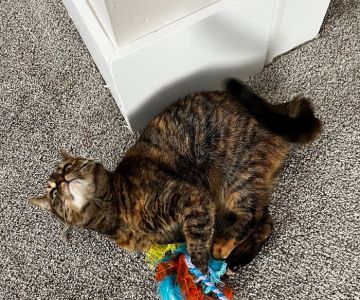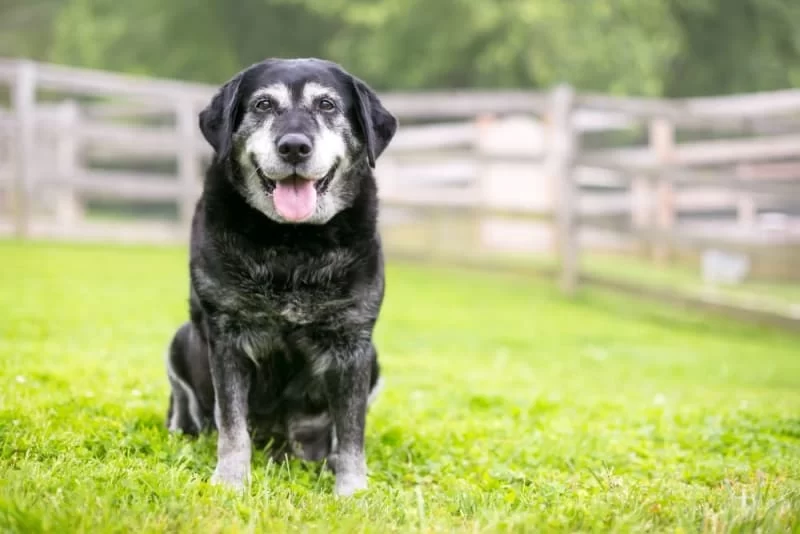Essential Tips for Senior Pet Care: Ensuring Your Aging Pet’s Comfort and Health
- Understanding Senior Pet Needs
- Common Health Issues in Senior Pets
- Creating a Comfortable Environment for Elderly Pets
- Nutrition for Aging Pets
- Exercise and Mental Stimulation for Senior Pets
- Regular Veterinary Care for Senior Pets
Understanding Senior Pet Needs
As pets grow older, their needs change in many ways. Senior pet care is not just about managing health issues; it’s about ensuring your aging pet remains comfortable, active, and happy. Senior pets require extra attention in terms of diet, exercise, and overall well-being.

6136 Crawfordsville Rd, Indianapolis, IN 46224, USA
See Details1. Aging Pet Behavior
As pets age, you may notice changes in behavior. They may become less energetic, have trouble climbing stairs, or become more sensitive to cold weather. These changes are normal but require adjustments in their care routine.
2. Adjusting Care Routines
Senior pets need a routine that accommodates their changing abilities. Be patient with them, and make necessary adjustments to their daily activities, such as reducing the length of walks or providing more frequent rest breaks.
Common Health Issues in Senior Pets
As your pet ages, they may face a variety of health problems. Knowing what to watch for and how to address common senior pet health issues can help improve their quality of life.
1. Arthritis and Joint Pain
Arthritis is a common issue for older dogs and cats, causing pain and stiffness in the joints. Signs of arthritis include difficulty standing up, limping, and reluctance to play. Regular veterinary check-ups and pain management strategies can help keep your pet comfortable.
2. Dental Issues
Dental health becomes even more important as pets age. Gum disease, tooth loss, and other dental issues are common in senior pets. Regular brushing, dental chews, and professional cleanings can help prevent these problems.
3. Vision and Hearing Loss
Senior pets often experience vision and hearing loss. These changes may affect their ability to navigate their environment or respond to commands. Making adjustments to your home, such as using more tactile or audible cues, can help them feel secure.
Creating a Comfortable Environment for Elderly Pets
Making your home comfortable for an aging pet is one of the most important things you can do for their well-being. Here are some practical ways to ensure your senior pet’s comfort:
1. Comfortable Bedding
Older pets may have a harder time lying down and getting up from hard floors. Providing orthopedic or memory foam beds can help relieve pressure on their joints and muscles.
2. Safe and Accessible Spaces
Ensure your home is safe for an aging pet by eliminating obstacles and making spaces easily accessible. For example, placing ramps or steps near furniture or beds can help your pet move around with less difficulty.
3. Proper Temperature
Senior pets may have a harder time regulating their body temperature, so it’s important to maintain a comfortable environment. Make sure they are not exposed to extreme temperatures and provide cozy areas for rest.
Nutrition for Aging Pets
As pets age, their nutritional needs change. Proper nutrition is crucial for maintaining their health and energy levels.
1. Special Diets for Senior Pets
Senior pet food is formulated to meet the unique nutritional needs of aging pets. Look for food that supports joint health, digestion, and overall vitality. Some senior pet foods also help with weight management and may contain fewer calories to prevent obesity.
2. Supplements for Senior Pets
Supplements such as glucosamine and omega-3 fatty acids can support joint health and reduce inflammation. Speak to your veterinarian about which supplements may be beneficial for your pet’s specific needs.
3. Hydration
Older pets may not drink as much water as they should, leading to dehydration. Always ensure fresh water is available and consider offering wet food to help increase hydration.
Exercise and Mental Stimulation for Senior Pets
Just because your pet is aging doesn’t mean they don’t need exercise or mental stimulation. In fact, staying active can improve their mobility and cognitive function.
1. Low-Impact Exercise
Gentle exercises, such as short walks or swimming, are great for senior pets. These activities can help maintain their muscle tone and prevent weight gain, which is important for joint health.
2. Mental Stimulation
Senior pets, especially dogs, benefit from mental stimulation to keep their minds sharp. Puzzle toys, scent games, and interactive play can help prevent cognitive decline and provide enrichment.
Regular Veterinary Care for Senior Pets
Regular veterinary check-ups are crucial for aging pets. These visits allow your vet to monitor your pet’s health, identify any potential issues early, and provide the appropriate treatment.
1. Routine Check-Ups
Senior pets should visit the vet at least twice a year. This allows for regular screenings, vaccinations, and preventative care.
2. Preventative Care
Preventative care, such as dental cleanings, parasite control, and joint health management, can keep your senior pet in good shape for years to come.
3. Specialized Care
As pets age, they may require specialized care for conditions such as arthritis, heart disease, or kidney problems. Your veterinarian can guide you in managing these conditions and improving your pet’s quality of life.
If you're looking for expert care for your senior pet, visit Hidden Brook Veterinary for personalized advice and treatment options.











